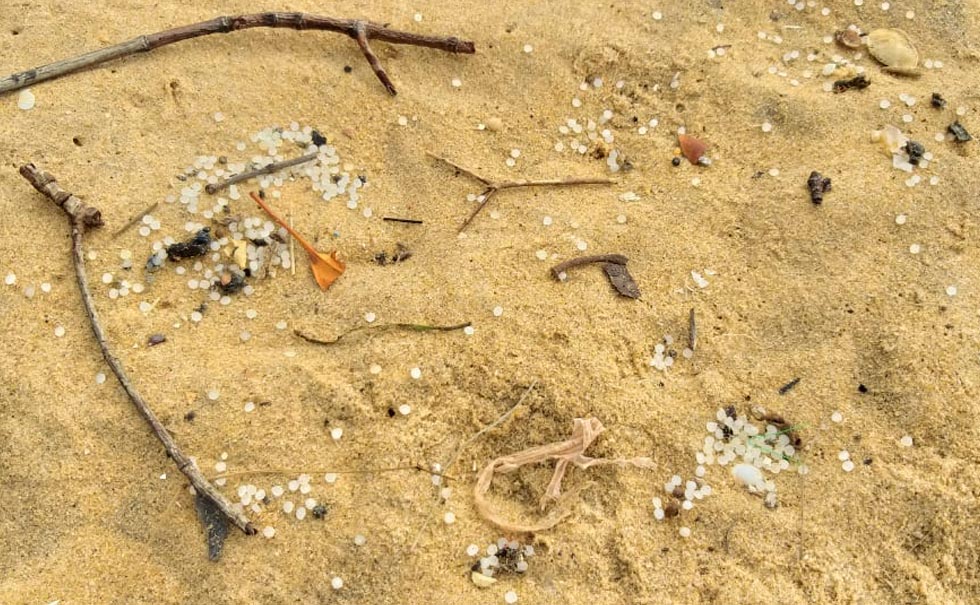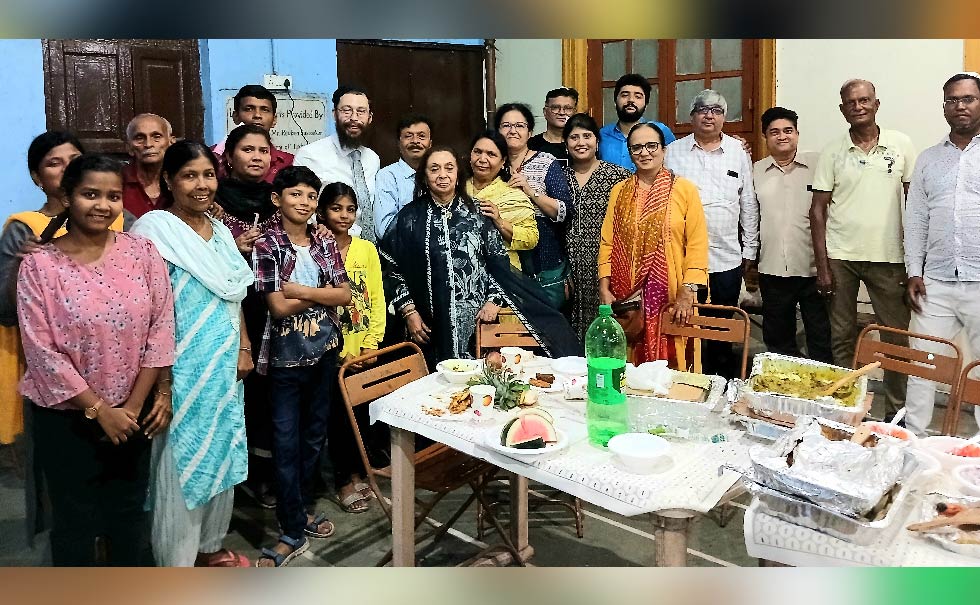Symptoms of the disease
Shalom U’vracha,
For the last 14 days, we have been in the idyllic quarantine location of Negombo, Sri Lanka.
This is the second time that I have actually quarantined at this hotel (the first time was back in early April). The staff here are friendly and have made every effort to accommodate both myself and now my family, including allowing us to cook in our hotel room and utilize raw ingredients from the kitchen.
The area itself is a tropical paradise with golden beaches and gently swaying palm trees – or rather, it was back in April when I first visited. Today a very a different story is told:
On the 20th of May, the X-Press Pearl caught fire off the coast of Colombo and after burning for 12 days, the vessel sank on 2 June as it was being towed away to deeper waters.
The incident has been deemed the worst marine ecological disaster in Sri Lankan history. The vessel was carrying 1 486 containers, with contents including 25 tons of nitric acid (which can be used in the manufacture of fertilizers and explosives), other chemicals, cosmetics, and a great quantity of low-density polyethylene (LDPE) pellets. As the boat sank, it dumped the majority of its contents into the ocean which was subsequently washed up on the beautiful beach here. The once perfect island destination is now coated in small plastic pellets as well as areas covered in oil – the local fishing industry has been deeply affected and the tourism industry (already greatly impacted by Covid-19) has suffered a great and tragic loss as many of the worst affected areas are prime tourist destinations.
This is, however, is only the obvious observable surface level of the disaster. In the sea, dangerous and poisonous chemicals continue to leak into the water and the entire ecosystem is likely to be damaged for decades – whilst it is sad to see the plastic on the shore and to hear of what has happened to local industry, the truth is a larger image that we all know to be true:
Regardless of one’s thoughts on global warming and various other climate change issues, one thing is inescapable and obvious: our treatment of our planet and each other is often disgusting – our current system of commerce and style of disposable living has come at a terrible cost. Too often we treat people as disposable and essential world resources as matters of commerce.
We as a family have had the great privilege due to our position to travel the world and visit many locations. Often I report on the warming stories of human connectivity and the ongoing interesting human spiritual drama – this is normally achieved by ignoring the larger and more obvious dilemmas facing the locations we visit.
I too am guilty of turning my attention away from the facts:
Poverty, pollution, hunger, disease, and crime.
These are often entirely avoidable human tragedies caused mostly by our greed and nonchalance towards those who must walk this planet after us and those living in other countries where their plight escapes our immediate attention.
I have seen first-hand deforestation, the toxic waste running in rivers, the land literally covered with plastic trash – the truth of what we are doing to our world is self-evident for all those who care to open their eyes. The social issues, wars, and struggles against addiction, violence, and depression are all equally real. There are many locations where people exist on a hand-to-mouth reality, a constant daily struggle to eat and find drinkable water for themselves and their families.
What is perhaps more unthinkable, is that many of those living in some of the worst conditions live in places that are actually very wealthy in terms of agriculture and production – their plight and poverty comes not at the inability to grow enough food or find potable water, but at their economic position of providing goods to the west.
Unfortunately, many have adopted a terrifying spiritual position which, whilst inspired perhaps in some way by some other culture that borrow our texts but not our theology, have zero place in a thinking religious person’s mind: There exists a sin of foolishly believing that these problems before us will simply vanish when “Mashiach” comes, or that “Scientists will one day be able to solve it”. These two ideas, whilst perhaps portrayed as belonging to different ideologies are in fact both defense mechanisms of the same underlying disease: the rejection of personal responsibility and the distancing of our own moral obligations to fix the issues before us.
Too often our own communities are caught up in a theological debate or religious nitpicking as to what constitutes the exact understanding of a certain law or verse whilst the larger human picture is lost. People go hungry, homeless, and are exposed to pollutants whilst we hide behind the mask of caring deeply about spiritual and scriptural issues. We lack support for any infrastructure for trans-denominational soup kitchens, shelters, and other much-needed social welfare programs that could benefit humanity as a whole.
Such a statement does not entail that I have a disrespect for scriptural analysis or that I look down on the process of debate and a search for the truth in our traditions – however, such a preoccupation cannot come at the expense of noticing and acting upon the issues before. To claim to have some kind of “spiritual understanding” and not be motivated towards action in the wider human situation seems to my understanding a little myopic.
In much the same vein to see recent and historic calamities described as “acts of God” when in fact they have been largely due to human negligence has produced within me the same feelings. Shall we in turn call the plastic on the seashore, the disappearing forests and extinction of natural wildlife “acts of the Divine?”, shall we see structurally poor buildings collapse or over-attended gatherings become stampedes and then ask theological questions? Shall we blame talking in Synagogues for these issues? Tzniut?
To watch such disasters and misfortunes described in the manner I have seen recently by religious leaders is shocking and deeply unfortunate. Rather than the acceptance of the tragedy and consolation of mourners we have fingers pointed and such events used to promote the same tired old speeches on soapboxes of religious-cultural conformity to save us from Dante’s Inferno.
Arguably, any such a detour is the opposite of Torah – the basic premise is that Hashem, our God is Infinite and we are finite; any question of “why things happen”, ultimately hinges on this prerequisite understanding of the chasm between Divine Creator and created being. Reminding me of the much-quoted verse by Tennyson in his poem The Light Brigade, ‘Ours is not to reason why, ours is but to do and die’ – that I always understood to mean, our response to our experience is more pressing than the philosophical implications of it.
What is required of us by the Torah is to ask where the human responsibility lies, who is at fault, and what is our obligation to each other to safeguard and protect each other from the single greatest threat to life and freedom:
Ourselves.
It is we who have destroyed our environment and created a system that is this deeply unjust and disparate and it is thus only we who can fix it – praying for some kind of Hollywood salvation from the misdeeds of our own hands may satisfy some misunderstood messianic notion, but the Torah of Truth requires that we perceive our own requirement to save ourselves and humanity.
The plastic waste and pollution on the surface are nothing to pollution beneath the waves. The same could easily be said for the symptoms of despair seen in our lives and the reality of the illness of the human condition on this planet.
Rabbi Jonathan Goldschmidt 2021 ©
A powerful video of the beach and the terrible effects is available here:
https://www.youtube.com/watch?v=Jp-D3VLxli8




